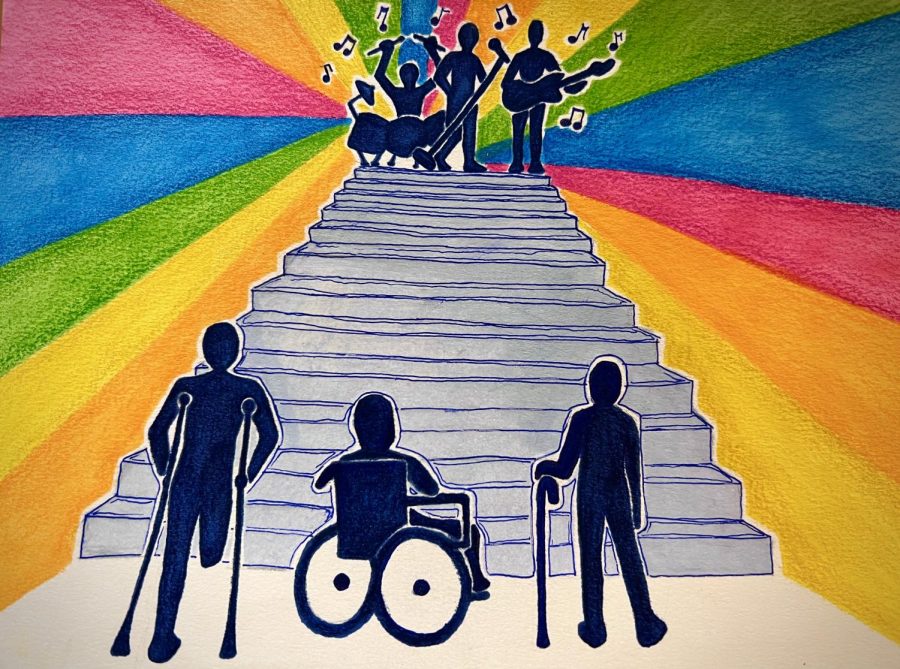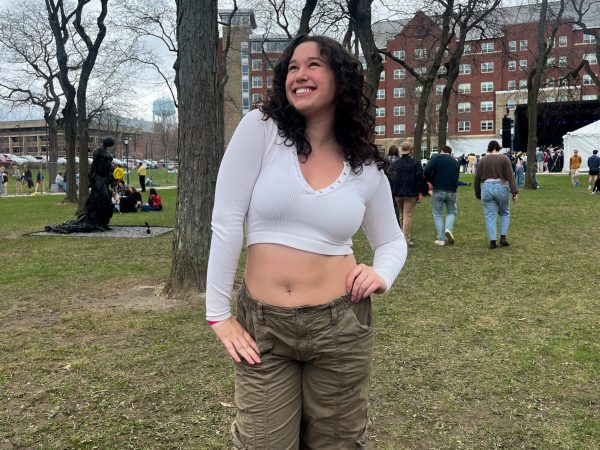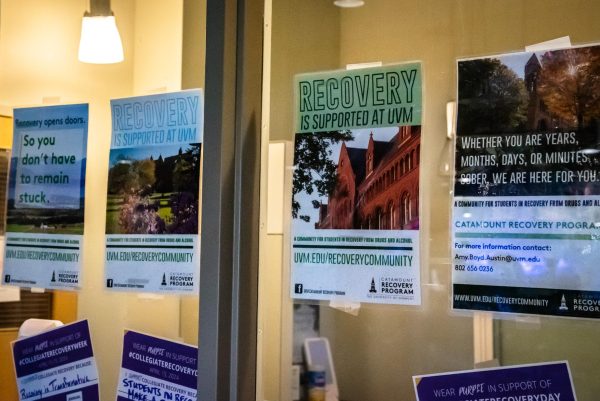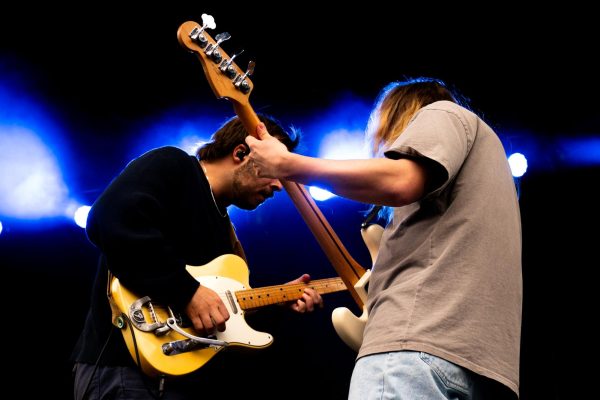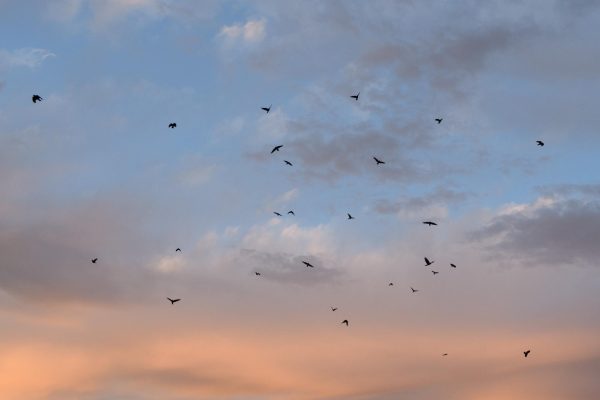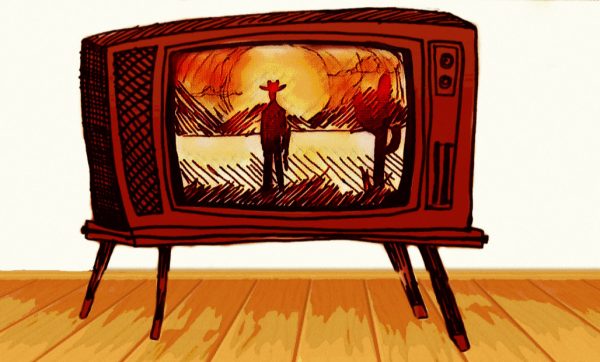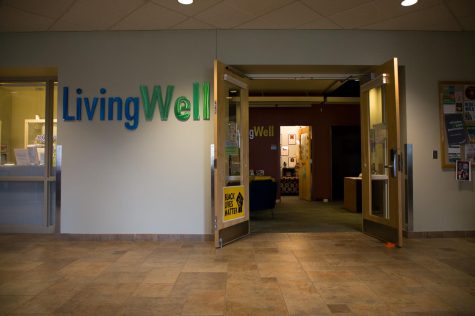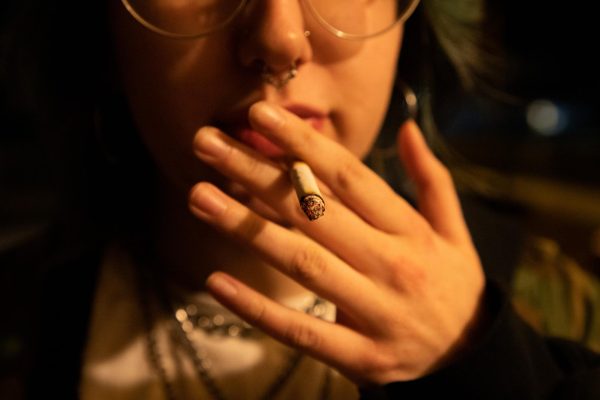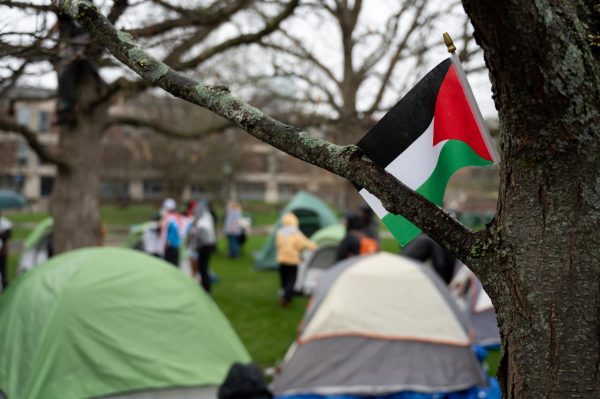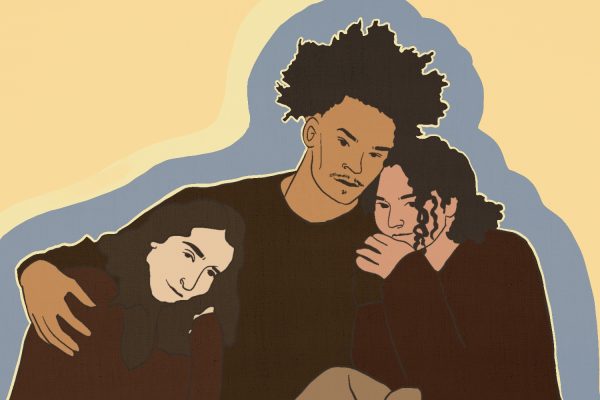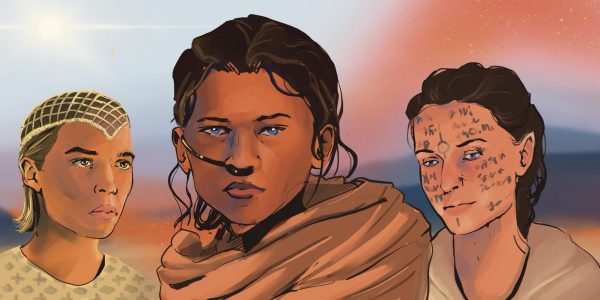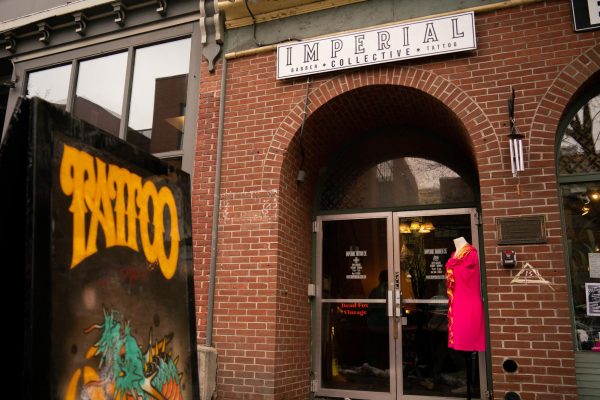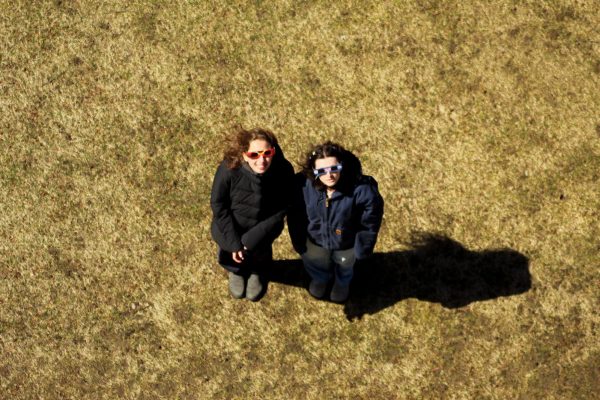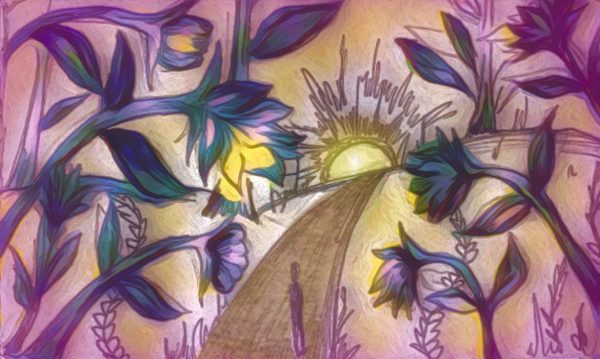Literally underground: Problems with accessibility in UVM’s band scene
It’s dark and sweaty. There’s a concerning smell of mold in the air, but you don’t care. Music is blaring from the amplifier next to you and a mildly attractive guitarist is riffing on the band’s cover of “Mr. Brightside.”
As a place to have fun and sloppily dance around with friends, basement shows are a familiar part of many UVM students’ weekends. With these shows being underground, however, the setting creates barriers to people with mobility and/or sensory disabilities from joining in on the fun.
The Disabled Student Union is a newly-formed group organizing to create a manifesto of student demands, concerns and priorities, work with other marginalized groups and provide a representative, accessible space to amplify the voices of disabled students and hold the University accountable for acts of ableism, according to the club’s Instagram page.
Based off issues voiced at the first meeting, the group’s main goals surround combating widespread accessibility barriers to academic and living spaces at UVM. Ease of access to social events for disabled students is a great concern as well.
First-year Molly O’Neill, who walks with a rollator—a wheeled walker—faces challenges accessing UVM’s band scene as they can’t physically go down stairs.
“A bunch of my friends were going to this basement concert and I was like, ‘oh my god, that sounds so fun, but is it actually in a basement?’” O’Neill said. “I’m not gonna be a hindrance to their social abilities if they can go down the stairs.”
First-year Lillian Olsen, one of DSU’s undergraduate co-chairs, walks with forearm crutches and faces the same challenge.
“As a student who came here as a music minor and hoped to connect to other students through [basement shows], it’s been alienating,” Olsen said.
COVID-19 is another concern for immunocompromised students. With most students not wearing masks anymore, these tightly-packed and poorly-ventilated basements are just not a viable option.
In addition to the obstacles facing those with physical disabilities, many members of the UVM community get overstimulated in loud, high-energy social settings. This could include being overwhelmed by social anxiety, loud noises, flashing lights or bumping into other people, among other things.
So, even for some folks who are physically able to get into an event, they have to worry if they’ll actually be able to enjoy it.
Designated quiet spaces have been really helpful, Olsen said. These are accessible rooms where people can take a minute off to the side if they become overwhelmed.
“It allows us to self-regulate with dignity, meaning not in a bathroom,” Olsen said.
Junior Katie Marshall, an exchange student from the University of Sussex and one of DSU’s undergraduate co-chairs, also wished there were designated quiet spaces at events or venues.
“Standing in a slightly damp, still noisy, crowded bathroom stall isn’t a great alternative,” Marshall said. “Now, providing an area that people can get to easily would be great.”
Marshall also said it would be great for venues to offer earplugs at concerts. Not only is it helpful for people with sensory issues, but it is also generally recommended for preserving your ear health, according to the Cleveland Clinic.
The obvious answer to solving these accessibility problems would be to encourage student bands to utilize outdoor performance spaces more often.
Some on-campus bands frequently hold shows behind the Back Five on Trinity campus, or occasionally in the Amphitheater on Athletic campus.
For Olsen and O’Neill, these outdoor shows are great because they can actually get into the concert, and the outside setting allows them to sit and rest away from the crowd while still enjoying the music.
With the winter rapidly approaching, however, bands will no longer be able to comfortably play outside. Additionally, outdoor shows are more prone to being shut down by police for noise violations.
Plus, with bands being more easily able to charge entry fees for basement shows, it becomes more enticing to play in these underground spaces despite their drawbacks.
There are numerous factors UVM’s disabled student population must consider when thinking about attending events. A lot of the time, they won’t know whether they’ll be able to get in or safely rest in a quiet space if they need to until after they arrive.
“It’s screamingly obvious when an event has been organized and nobody who is disabled has been consulted or involved,” Marshall said.
Based on the countless social events they’ve tried to attend, O’Neill said it feels like the UVM community doesn’t expect disabled people to be social at all.
Marshall agrees that her community is often left out of social events.
“I think for a lot of able-bodied people, it’s like, ‘oh, that community knows what to do, like they’ll be fine,’” Marshall said. “But actually, we can only do so much for ourselves. You have to meet us halfway.”
Bands and performers must consider accessibility when booking shows and choose accessible venues when they can.
I’m not saying bands shouldn’t book basement shows—after all, they’re the most convenient spots for bands to play, and sometimes I, too, enjoy getting my groove on to some local music in a musty, packed, barely-breathable basement.
But there are some great on-campus spaces that are accessible and allow for self-regulation if needed, which performers should be taking advantage of more often. These include Brennan’s Pub, the McAuley Great Room and potentially some spaces in Southwick Hall.
As for off-campus spots, there are plenty of bars that are accessible like Orlando’s Patio, Radio Bean, Nectar’s, Foam Brewers and others, though many of these venues do pose the challenge of having to be 21 to get in.
At the end of the day, there isn’t a concrete solution to solving inaccessibility in the music scene.
However, I and other able-bodied people can and must actively think about unintentional barriers we are creating by hosting events in certain spaces and create more safe opportunities for disabled folks to engage in and enjoy local music.


